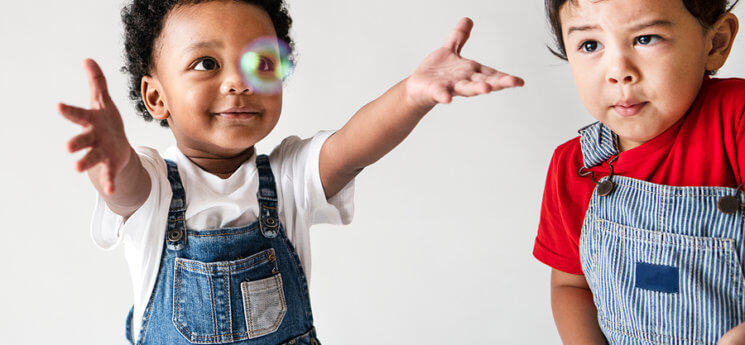Got a toddler? Prepare yourself (and your calendar) because toddlerhood is when the playdate years officially begin. Having your little one participate in these planned playtimes can help her learn important skills like sharing, taking turns, cooperating and following rules.
First, a word to the wise: Toddler playdates are most successful when parents play nice and plan ahead.
“Playdates may mean fun time, but with toddlers there’s a lot to take into consideration,” says Mary Alvord, Ph.D, a psychologist and author of Resilience Builder Program for Children and Adolescents. “Pre-planning helps create a more fun and positive experience for everyone involved.”
Here’s how to prepare for your toddler’s first playdate.
Set the date and details
- Consider timing. Avoid playing during nap time or lunchtime. If kids are tired or hungry, you’re guaranteed a meltdown. Keep toddler playdates short, too. An hour or an hour and a half works for kids under four.
- Trim the guest list. Save yourself the stress of group playdates. “Developmentally, it’s important for young toddlers to have one-on-one time with another child to encourage back-and-forth exchanges and learning,” says Dr. Alvord.
- Talk logistics. Chat with the other parent about potty training status, allergies or animal phobias so that everyone is aware of potential issues. Avoid drop-offs for toddlers three and under—they can’t express their needs clearly yet.
Prep on the big day
- Plan activities. Playing host for your toddler’s first playdate? Set up a few activities ahead of time such as clay or blocks, like they do in early childhood programs. (Need ideas? Here’s plenty for rainy day activities, cold weather activities, and warm weather activities.) Kick off playtime by steering the kids to one activity. If it flops, no big deal! Just move on to something else.
- Touch on sharing. Before your child’s pal arrives, explain that toys will need to be shared because her friend will also want to play with them. Let her put away some special toys when at home to reduce conflict.
Facilitate fun
- Be realistic. Remember, it’s normal for kids under four to parallel play with little interaction. Bigger kids are the ones who will be interested in playing together. Toddlers also need supervision for safety reasons, so plan on sticking around.
- Go low tech. “It’s important to teach kids resilience so that they learn how to bounce back from stressors in their life. That means being proactive—you plan and take initiative. Introducing tablets and smartphones at playdates engages kids in a passive activity that can interfere with that learning opportunity,” Alvord explains.
- Prepare for goodbye. Build in some winding down time by reading a book. While cleaning up, set a timer and announce that it’s time to say goodbye when it rings. Easing into the end of your toddler’s first playdate will help send everyone off with a smile.




